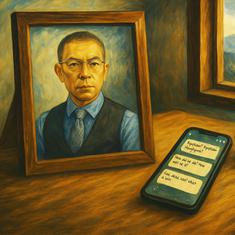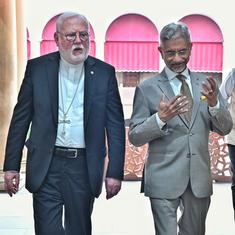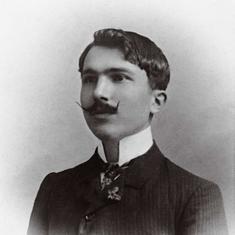Same-sex marriages case: Review plea filed against Supreme Court’s verdict
The court had left the decision on their recognition to Parliament, ruling that there is no fundamental right to marriage.

A review petition challenging the Supreme Court’s October 17 judgement refusing to legalise same-sex marriages was filed in the top court on Wednesday, Bar and Bench reported.
The review petition was filed by Udit Sood, one of the earlier petitioners.
Delivering its verdict on pleas seeking legal recognition for same-sex marriages, a five-judge Constitution bench headed by Chief Justice DY Chandrachud ruled on October 17 that there is no fundamental right to marriage. It also left the decision on recognising same-sex marriages to Parliament.
The petitioners had argued that the country’s marriage laws discriminate against the LGBTQIA+ community and infringe on their fundamental right to dignity and privacy. They had thus sought an amendment to the Special Marriage Act, 1954, for legal recognition of same-sex marriages.
The bench’s judgement included four opinions. Of the four opinions, the one by Justice S Ravindra Bhat, on behalf of himself and Hima Kohli, is the majority opinion since it is also fully endorsed by PS Narasimha’s opinion. As per judicial custom, the directions contained in the majority opinion are what the state is obliged to follow.
The opinions by Chandrachud and Justice Sanjay Kishan Kaul, in consonance with each other, differed from the majority on two key areas: the legal recognition of same-sex unions and adoption by same-sex couples. These minority opinions, which are not legally enforceable, direct the state to legally recognise same-sex unions and interpret the Adoption Regulations, 2022, to facilitate adoption by same-sex couples. The majority opinion, however, sticks to the status quo on both these points.
The challenge to provisions of the Special Marriage Act was unanimously turned down by the top court.
The chief justice directed the Central and state governments to ensure that members of the queer community are not discriminated against because of their identity. He also directed the authorities to sensitise the public about queer rights, to create a hotline for the queer community, to create safe houses for queer couples and to ensure that inter-sex children are not forced to undergo sex-change operations.
The court also recorded a statement of Solicitor General Tushar Mehta that the Union government will form a committee to decide the rights and entitlements of persons in queer unions.
When the matter was being heard in the court earlier this year, the Centre had opposed the petitions, arguing that same-sex marriages are not compatible with the Indian idea of a family and that the demands for their legal recognition represent “urban elitist views for the purpose of social acceptance”. It also contended that making laws around marriage is the prerogative of the legislature and the judiciary should not intervene.
Also read: Explainer: Why the Supreme Court refused to legalise same-sex marriages









